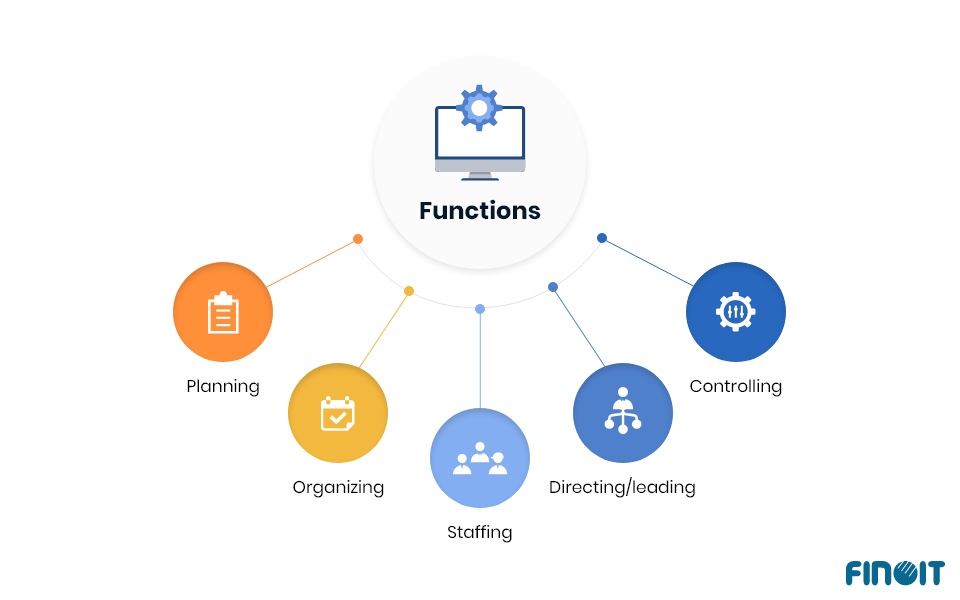All You Need to Know About Managing Software Development Teams Effectively

Successfully managing software development teams requires project owners to adopt a multi-pronged strategy. Injecting a spirit of inclusiveness and promoting the individual growth of software development team members is as crucial as accomplishing business goals.
Enterprises today have a stronger impetus than ever to get digitized. The current era of fierce competition has necessitated building and having software applications at the hub of the decision-making framework.
But managing software development teams has been emerging as a new challenge for team leaders and project owners. At a time when team structures are undergoing rapid changes and there’s a focus on optimizing team sizes vis-à-vis improving performance, managing software development teams is not easy.
Every project manager wants to own a skill-centric high-performance project team so as to deliver the best output in the least time. While the basics of software development remain the same, the team structures differ with the scale of the project. So, there is no single factor that project owners have to focus upon.
At the end of the day, team leaders need to get rid of cobwebs, if any, exist in the path of managing software development teams. And for this, they must first equip themselves with the knowledge of the best practices to manage a software development team.
Software development team management best practices that take your team to the next level
One of the hallmarks of a successful team leader or project manager is strong skills in managing software development teams. Even when you outsource software development, you will act as a project owner, and won’t be isolated from the project. You must thus know software development team management best practices, or else you will be clueless about how to manage software developers and other team members. To prevent you from landing in that situation, here we discuss at length the best practices for managing software development teams.
Set clear goals
When managing software development teams, the first thing you need to keep in mind is setting clear goals for the team as well as individual team members.
When your team has specific goals to achieve, it will perform at its best. These objectives must be made public so that they get conveyed easily to the new team members join when they join the team.
You cannot separate team goals from individual goals, which represent the expectations and targets established for each team member, that are ultimately linked to your overall team goals.
While team goals pertain to corporate objectives, individual goals function as a fundamental motivator for personal growth. Thus, they prompt individual team members to strive for both their own growth and the project’s success.
Establish performance metrics and use analytics to track them
All software development team members play equally important for achieving the ultimate business objective. Managers must establish performance metrics in conjunction with HR, and use analytics and project management tools to monitor the performance of the team. This simplifies monitoring productivity and makes sure that each team member is staying on the assigned task. It’s also a practical approach to scheduling work and ordering deadlines.
Managers must scientifically drive performance monitoring and tracking. Using project management software and HR analytics are parts of this process, as they assist them to get the accurate status of the ongoing projects.
Analytics can be used to reward staff members that go above and beyond expectations. A feature in some project management systems that ranks top employees can increase morale, self-assurance, and productivity.
Leverage feedback for improvement
Seeking feedback is a constructive step in managing the software development team. Team leaders must thus pave a way for clear channels for obtaining feedback from every single team member on the ongoing initiatives/actions.
You can show your respect for their abilities by seriously considering and internally endorsing their suggestions. This is crucial for team members as they should know that they are a valued part of the team.
By developing an open feedback mechanism with the team, everyone is put on an equal footing which helps in future development. Similarly, you must offer constructive feedback to team members, whenever you discover that their performance is falling.
Give them honest criticism to demonstrate that you think they can do better. Encourage them to learn and improve, as people genuinely desire growth through feedback.
Collaborate with the right tools
Effective collaboration between software development team members is essential for successfully managing software development teams.
Software development relies heavily on teamwork and communication, but teams who aren’t physically based together struggle with these skills even more. Determine your team’s unique requirements to determine which tools would be the most effective to employ for remote team collaboration.
Conversations frequently take place in chat, emails, and even online meetings. When you use the right collaboration tools, software development team members can easily connect with each other.
You can facilitate excellent collaboration between team members with software development collaboration tools like Trello, Asana, Wrike, etc. Notably, online collaboration tools can scale up your team’s productivity by 30%. Additionally, you may designate specific tasks and due dates to one or more task owners so that everyone is aware of their place in the overall scheme of things.
Regularly have one-to-one discussions
The simplest way to make sure your developers receive everything they need from you and have the chance to clarify doubts and questions is to hold one-to-one meetings on a regular basis.
One-to-one conversations are always beneficial and productive, as they help you get a micro view of the issues that individual team members are facing. You create trust in your team members and can resolve their issues in a much better manner. So, you give your team members enough time to concentrate on the ongoing development activities.
In any case, one-to-one meetings are the simplest way to get to our team members and have a positive impact on their performance. And so, they are essential when managing software development teams.
Offer autonomy
When managers are required to participate in every decision, they may not necessarily add value. Some of the decisions your team members can take. It’s only that you will have to create a culture of performance, hard work, and trust. Finally, you must be confident that the decisions that your software development team members are taking will have a positive bearing on the overall result. Granting controlled autonomy is thus important while managing software development teams.
The more independent judgments your team can make, the fewer decisions you will need to make. Giving your employees more authority in this way also frees up your time. Everything will go more quickly, which is beneficial for everybody.
No one enjoys being micromanaged. Additionally, micromanaging managers frequently causes more problems than they are able to stop or fix.
Have a flat structure
When you have an open-door policy, you make time to speak with any team member who needs assistance. When managing software development teams, an open-door policy can remove obstacles in communication and maintain the efficiency of the staff. However, your team must know that an open-door policy exists so that they can reap its benefits.
Establishing a clear chain of command is vital to the successful execution of the project. It helps team members know whom should they first inform in case anything goes wrong. Although in most cases, it will be the team leader, there might be another person higher up whom they will have to approach, in case a problem escalates. So a flat structure offers a channel of communication for dealing with any escalations if the team leader is unable to solve them.
You too must take note of this. There can be problems that are beyond your understanding or area of competence. Know whom to contact and what questions to ask if that happens.
Ensure consistency
Everyone finds it tough to deal with uncertainty. Essentially, this can be very difficult for the team leader to handle. As a result, Because of this, it’s crucial to be as consistent as you can with your expectations, rules, and procedures.
Keeping in mind that everyone working on the project ultimately contributes to its success is an important aspect while managing software development teams.
Apart from software developers, you will have other team members, with diverse skills, on the team, and you should value their opinion as well. Consistency in management is offered by accommodating the opinion of experts with diverse skills, which will help you bring out effective results.
Know your own and your team member’s strengths
Although you may not be an expert in every aspect of software development, you do bring important knowledge of how your client thinks and what their ultimate goals are. So, by dividing large projects into small tasks, you will better position yourself in achieving goals. And make sure that clients understand the job done by developers (as well as the mistakes, obstacles, and chances that are certain to appear).
Developer teams must follow the same guidelines as other teams in terms of not micromanaging, listening to their comments, giving detailed instructions, and outlining roles, duties, and goals. These are all essential actions when managing software development teams.
You can start figuring out each employee’s strengths or skills as you get to know them better. This information will prove useful when executing projects and allocating tasks to individual team members.
Explain the context clearly
You should make an effort to include as much information as feasible when assigning assignments or issuing directives.
When you have a team of intelligent software developers, they can work more efficiently if you explain why they should do something rather than merely telling them what they must do. Finally, everyone values time equally, and when an efficient way to finish a task is discovered, then anyone can adopt that.
Clearly explaining the context for every activity thus matters when managing software development teams, as it gives your team members a clear direction. Your team members can develop a proactive attitude to meeting project goals and dealing with underlying problems.
Encourage inclusive decision-making
While you can’t afford to ignore business concerns, make sure to constantly get your team member’s opinions when coming up with ideas for new features and products or when determining time-to-market deadlines. The engineering teams must be involved in important areas of the decision-making process, such as design decisions and whiteboarding.
Inclusive decision-making is an essential component of managing software development teams. There is always a huge opportunity to improve decisions and consequently business performance with a diverse and inclusive workforce. Because of this, it is essential from a strategic standpoint that more employees are involved in decision-making. The beauty of this strategy is that it will boost employee morale, and engagement, and make them satisfied with their job.
Identify the need for training
As a team leader, you will always be responsible for ensuring that your software development team members remain updated with the recent skillsets. From time to time, you must thus identify the need to train them when managing software development teams.
You can help your team plan training that will work for them by establishing a clear budget for it in terms of both money and time, as well as expectations for how or when the budget needs to be spent.
Everybody learns in a unique way. Some people like to read books, while others choose to take online courses or attend conferences. Allow each employee on your staff to learn in a method that is right for them, and support it with financial assistance.
Reward hard work
Software development is a challenging job with stringent expectations of results. Your software development team members may not easily be able to quantify their output compared to team members from any other common function such as HR or Marketing.
If you want to build a high-performance software development team, then you must have a policy to publicly commend your team members’ work. Rewarding hard work is as essential as expecting quality in-time output from team members. Without rewards, frustration may start gripping your team members. While on the other hand, rewards will motivate them to set higher benchmarks.
Balance the roles in the team
When managing software development teams, you need to know that you will have senior and junior software developers in the team. Likewise, you will have system architects, QA engineers, and UI/UX designers. Each one will report to you directly or indirectly, so you will have to balance between the team members.
Each member will bring you a different set of challenges in managing their position in the team. For instance, junior software developers will require mentoring till they attain maturity enough to work by themselves.
While you may want senior software engineers to mentor and guide them, occupied with project work, senior team members may find it difficult to engage in the mentoring process. Collaborating with HR and having a continuous mentorship program to foster continuous learning will prove to be the best recourse when onboarding new members in the team.
Focus on quality and not quantity
Your experience as a project manager will be reflected in how you optimize the team size while consistently improving quality. Agile project management philosophies like Scrum prescribe team size of 3-9 people, which highlights why quantity can never be emphasized over quality.
Reorganizing your team to handle short jobs, often ones that can be completed within a few days or a week is a better method for enhancing your developers’ efficiency. Assign distinct roles to each team member, such as code development, testing, and deployment. Make sure that each team has an optimal number of developers with a range of experience, including junior, mid-level, and senior developers.
Manage and resolve conflicts
Conflicts can occur in technical and personal matters due to disagreements between team members. Team leaders must avoid making assumptions when resolving conflicts and instead concentrate on the actual problems and document them. Once all benefits and drawbacks have been considered, it is vital to step back and challenge the group to come up with fresh ideas. Conduct another brainstorming if developers do not produce the desired results.
Due to participation and communication, retrospectives will pave a way for a positive impact. They will help develop new methods to establish a productive environment and enhance relationships within software teams. A good practice to avoid conflicts and ensure the smooth execution of projects is to use Kanban boards, so that team members are updated on the next move they need to take.
How to manage a software development team with no technical exposure
Not having technical exposure to software development is no deterrent to preventing you from managing software development teams. Here are some best practices to follow when managing software development teams from a non-technical perspective.
Get familiar with the idea of software development
Use multiple sources to get familiar with how software development works, the industry trends, and some technicalities. This will help you in the long run when managing software development teams for your ambitious product. You must become well-versed in Scrum and Agile methodologies so that you can easily implement them in your project.
Use established standards to gauge employee efficiency
When managing software development teams, the work performance should be evaluated like any other team. Keep track of the tasks that each team member has been assigned and ensure that it’s completed well in time. For the team leader, the opinions of the client will prove important to assess the team’s performance. You should employ the SMART (Specific, Measurable, Achievable, Relevant, and Time-bound) tool to gauge the performance of the team.
Focus on building relationships
Everybody has their own set of strengths and you must know the expertise of each team member. Communicate with those in the team who are educated about the industry when managing a software development team. You can start figuring out each employee’s expertise to know them better. When creating projects and allocating tasks, this approach will be useful.
Provide feedback on the non-technical side of the project
If you have no experience with software development, think about providing input on tasks that are unrelated to software. For instance, it’s crucial to assess team members based on the quality of the work, timeliness, and their engagement in the team. You can offer your feedback on the timeliness and communication that team members are showcasing while working as a part of the team.
What are the functions of a team manager in software development?

Important considerations when managing software development team members remotely
Monitoring and managing remote teams require team leaders to consider the following important questions carefully.
How to manage a software development team remotely?
Managing software development teams that work remotely needs a combination of approaches and tools. Use the best practices we outlined above to ensure hassle-free collaboration and reporting when team members work from diverse locations.
What are the best collaboration tools for software development teams?
Some of the best collaboration tools for software development teams that work remotely include Jira, Trello, and Basecamp for project management, GitHub for coordinated development and version control, Google Drive for document management, and Slack for instant messaging.
Which methodology is the best for managing software development teams remotely?
Agile is a proven methodology for managing software development teams that work remotely. However, Agile is a broad concept encompassing several approaches like Scrum and Rapid Application Development. In Agile, clear milestones are set for every sprint, and so despite being distributed across the world, your team members know the goals and the timelines for achieving them. This way, Agile produces high-quality output through remote teams.
Bring the best out of your software development team members
The ultimate objective of managing software development teams is to fully leverage each team member’s potential for the success of the project. A team leader is expected to bring many things to the table – structure, processes, and consistency.
Trends are shaping software development project management and new philosophies are emerging. So, it’s been a challenging transition for software development team leaders and project managers. On the flip side, it has unveiled new avenues to effectively managing software development teams.
To successfully execute your software development project, you must leverage all your energies on extracting the best out of each team member. Lead your software development project management process using a pragmatic approach and implement the best practices we prescribed here to catalyze a new positive start in your team. Connect with us to get an expert view on managing software development teams.

